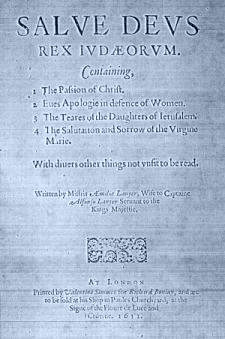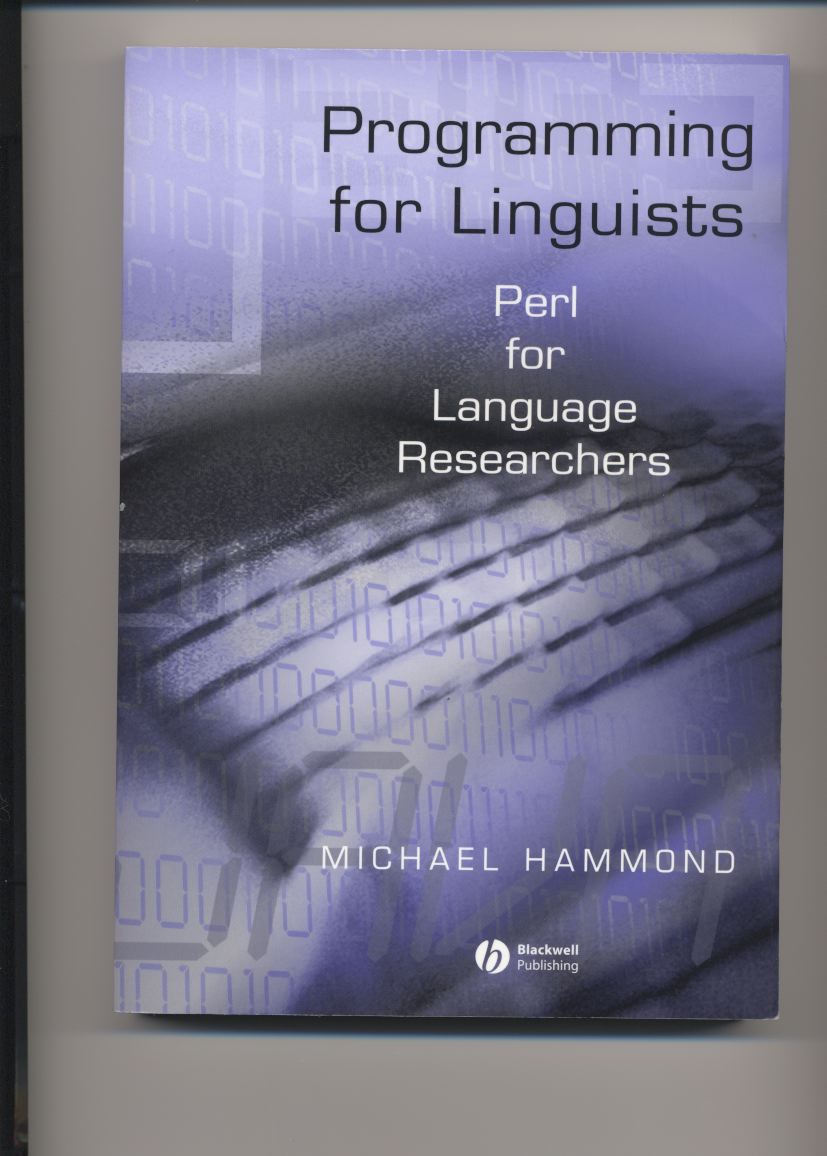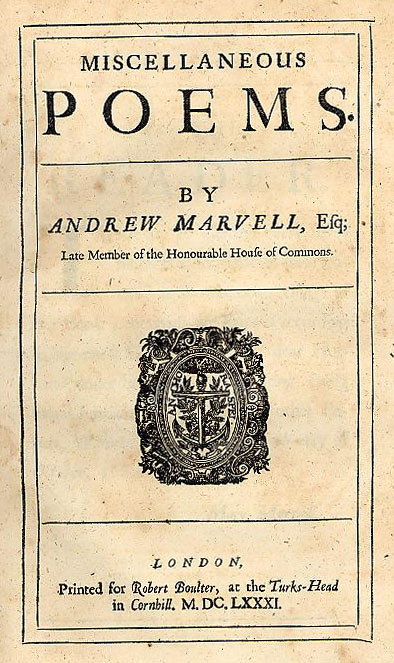|
|
Instructor: Mark LeBlanc
Office: Science Center B103
Office Hours: by appt.
(set time via email)
or
MWF 9:30-10:30
MW 3:30-4:00
|
|
Mark's Web Page
-- Email
Phone: 286-3970
Class Meeting Times:
Mon 2:00-3:20pm, A102
Wed 2:00-3:20pm, csLab
|
The use of computers to manage the storage and retrieval of written texts
creates new opportunities for scholars of ancient and other written works.
Recent advances in computer software, hypertext, and database methodologies
have made it possible to ask novel questions about a poem, a story, a trilogy, or anthology.
This course teaches computer programming as a vehicle to explore poems and
other texts that are now available online. Programming
facilitates top-down thinking and practice with real-world problem solving skills
such as problem decomposition and algorithmic thinking. Programming on texts introduces
students to rich new areas of scholarship including stylometry and authorship attribution.
Prerequisites: A love of the written (and digital) word; no computer programming experience required.
Using computers to analyze poems and stories is an exciting new area of research. In this
course, you will learn to write programs in the language called Perl. Perl is a wonderful
language when you are dealing with strings of characters.
Some of the
programs that you will write will analyze texts to:
- compute the percentage of vowels
used in a text;
- find the longest and average sentence length of your favorite poem or book;
- search for patterns
of letters or words using the powerful pattern matching language of regular expressions;
- search your own papers that you have written in the past for questionable writing style
- determine the top-10 most frequently used words by an author;
- build a concordance of all the words in a poem or a collection of poems;
- learn the beginning steps in authorship attribution as you keep statistics for:
- the relative frequencies of the most commonly used words in a poem or story
- the average and standard deviation of the frequencies of the most
commonly used words for a particular author across multiple poems or stories
- z-scores to compare a sample work from one author with those from other authors
- hapax legomena (words that appear only once)
- dis legomena (words that appear only twice)
For example, we might attempt to determine if a 17th century poem was written by John Donne
or Aemilia Lanyer?

How every thing retaind a sad dismay:
Nay long before, when once an inkeling came,
Me thought each thing did unto sorrow frame:
The trees that were so glorious in our view,
Forsooke both flowres and fruit, when once they knew
Of your depart, their very leaves did wither,
Changing their colours as they grewe together.
Aemilia Lanyer, Salve Deus Rex Judaeorum
 Come live with me, and be my love,
Come live with me, and be my love,
And we will some new pleasures prove
Of golden sands, and crystal brooks,
With silken lines and silver hooks.
John Donne, The Bait
We will learn to combine Perl programs, comma-separated output from those Perl programs,
and Excel spreadsheets in a manner very similar to the way your instructor does when
doing research. One of the goals is to take the mystery out of the problem solving and tools
that one needs to do research in this area.
In addition to programming in Perl and work in Excel,
we will also study how computers store individual characters, including the
traditional (English-only) ASCII character code and the international standard
called UniCode. The end of semester will be devoted to the the Text Encoding Initiative (TEI).
The TEI is an international and interdisciplinary standard that helps libraries,
museums, publishers, and individual scholars store all kinds of literary and
linguistic texts on computers for online research and teaching. TEI is a "must-know"
for all scholars of the 21st century.
NOTE: This course is but an introduction to using computing to study written texts.
Computers allow us to study texts in exciting new ways that we could not otherwise do; however,
as we'll discuss at length, we are wise if we keep in mind what computers can not do.
The following quotes can help us (1) stay
humble and (2) stay focused.
"As students of a powerful new form of scholarship, we have much to offer.
We do ourselves no justice when we forget that the quantifiable features we deal
in are
but the shadow of a shadow."
John Burrows, Computers and the Humanities, v37,
2003, p30.
"The onus of competency, clarity, and completeness is on the practioner.
The researcher must document and make clear every step of the way.
No smoke and mirrors, no hocus-pocus, no 'trust me on this.' "
Joseph Rudman, Computers and the Humanities,
v31, 1998, p353.
In computer science, if you are almost correct you are a liability.
Fred Kollett (1941-1997), MathCS, Wheaton College, Norton,
MA
Text::
Hammond, Michael (2003).
 Programming for Linguists - Perl for Language Researchers.
Blackwell Publishing, 2003.
Required textbook. An
introduction to learning to program using the language Perl. Lots of small
examples with an emphasis on the essentials of "good programming."
Programming for Linguists - Perl for Language Researchers.
Blackwell Publishing, 2003.
Required textbook. An
introduction to learning to program using the language Perl. Lots of small
examples with an emphasis on the essentials of "good programming."
Readings::
Cook, Gareth (2003). Much ado about data. Health Science - Boston Globe. August 5, 2003, D1-D4.
Gould, John (2004). Before the computer bug, there was the type louse.
Weekly column from the Christian Science Monitor, January 9,
2004, p23.
Hockey, Susan (2000). Electronic Texts in the Humanities.
Oxford University Press, New York, NY. Ch. 7 Stylometry and Attribution Studies.
Klarreich, Erica (2003). Bookish Math - Statistical tests are unraveling knotty literary mysteries.
Science News, v164, No. 25/26, Dec. 2003, p392-394.
Levy, Steven (2003). Welcome to History 2.0. Newsweek. Nov. 10, 2003, p58.
Relihan, Joel (2002). Translating Boethius. Wheaton Quarterly, Fall 2002, 21-25.
Rudman, Joseph (1998). The State of Authorship Attribution Studies: Some Problems and Solutions.
Computers and the Humanities, v31, p351-365.
 URLs::
Finding books and poems online
URLs::
Finding books and poems online
Literature Online (Wheaton students only)
A fully searchable library of more than 350,000 works of English
and American poetry, drama and prose, plus biographies,
bibliographies and key criticism and reference resources.
Luminarium
http://www.luminarium.org/lumina.htm
This site combines three sites first created in 1996 to provide a starting
point for students and enthusiasts of English Literature.
Humanities Text Initiative
http://www.hti.umich.edu/
The Humanities Text Initiative (HTI) is an umbrella organization
for the creation, delivery, and maintenance of electronic texts, as
well as a mechanism for furthering
the library community's capabilities in the area of online text.
University of Virginia Library
http://etext.lib.virginia.edu/
The Center combines an on-line archive of tens of thousands of SGML
and XML-encoded electronic texts and images with a library service
that offers hardware and software suitable for the creation and analysis of text.
Project Gutenberg
http://promo.net/pg/
Project Gutenberg is the brainchild of Michael Hart, who in 1971
decided that it would be a really good idea if lots of famous and
important texts were freely available to everyone in the world.
Women Writers Project
http://www.wwp.brown.edu/
The Brown University Women Writers Project is a long-term research project devoted
to early modern women's writing and electronic text encoding.
Women Writers Online
http://www.wwp.brown.edu/texts/wwoentry.html
Renaissance Women Online
http://www.wwp.brown.edu/texts/rwoentry.html
When complete, the RWO collection will include 100 Renaissance texts from the main
WWP textbase, together with contextual introductions and topical essays on women's life
and writing in the Renaissance.
When complete, the RWO collection will include 100 Renaissance texts from the
main WWP textbase, together with contextual introductions and topical essays on women's
life and writing in the Renaissance.
Storing and Encoding Text Online
TEI
http://www.tei-c.org/
The TEI is an international and interdisciplinary standard that helps libraries,
museums, publishers, and individual scholars represent all kinds of literary
and linguistic texts for online research and teaching.
UniCode
http://www.unicode.org/
Unicode provides a unique number for every character,
no matter what the platform,
no matter what the program,
no matter what the language.
Perl
perl.com
http://www.perl.com/
Lots of good reading about the larger Perl community.
Perl documentation
http://www.perldoc.com/
When you need to find out how to do something in Perl.
The longest palindrome
http://www.norvig.com/palindrome.html
Your Grade:
| Things to do |
Grading Percents |
Frequency |
| Labs |
10% overall |
most Wednesday's |
| Homeworks |
10% overall |
TBA |
| 5 Programs |
50% overall |
|
| p0: My Favorite Poem |
4% |
Mon., Feb. 9 |
| p1: Vowel Counter |
8% |
Wed., Feb. 18 |
| p2: How's My Writing? |
8% |
Wed., Mar. 10 |
p3: Author Attribution
(Part I) |
10% |
Wed., Mar. 31 |
p4: Author Attribution
(Part II) |
20% |
Wed., Apr. 28 |
| Exams |
30% overall |
|
| Exam I |
15% |
Wed., Mar. 3 |
| Exam II |
15% |
Mon., Apr. 19 |
| No Final Exam |
|
|
|



 Come live with me, and be my love,
Come live with me, and be my love, Programming for Linguists - Perl for Language Researchers.
Blackwell Publishing, 2003.
Required textbook. An
introduction to learning to program using the language Perl. Lots of small
examples with an emphasis on the essentials of "good programming."
Programming for Linguists - Perl for Language Researchers.
Blackwell Publishing, 2003.
Required textbook. An
introduction to learning to program using the language Perl. Lots of small
examples with an emphasis on the essentials of "good programming."
 URLs::
Finding books and poems online
URLs::
Finding books and poems online